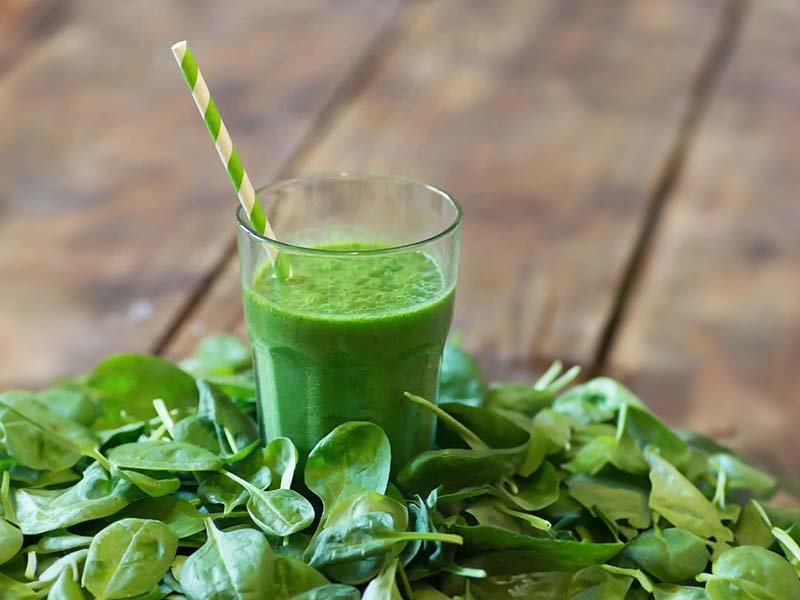Set aside the perplexing diet charts and focus on a standout in health and fitness: spinach! Ever wondered, ‘Does Spinach Help You Lose Weight?’ This leafy green superhero is much more than just low-cal – it’s a treasure trove of nutrients ready to be your sidekick on your journey to a healthier you.
Move beyond the mundane and join us in discovering spinach’s secrets, your delicious ally for a fitter, happier you. This article is essential for those seeking a healthy lifestyle with deliciously smart choices!
Related articles
- Is Greek Yogurt Good for Weight Loss? Secret Diet Benefits.
- Is Collard Greens Good for Weight Loss? Explore the Benefits.
- Do Carrots Help You Lose Weight? Surprising Diet Effects.
Is Spinach Good for Weight Loss?
Spinach is an excellent choice for anyone looking to shed some pounds. This leafy green is not only low in calories but also packed with fiber. This combination is key in helping you feel full and satisfied for longer periods, which is essential for controlling hunger and managing weight effectively. Adding spinach to your diet is a smart move for weight loss, as it can be easily incorporated into various meals, making it a versatile and nutritious option.
Note: Try adding spinach to smoothies, salads, or as a side dish. Its mild flavor blends well with many ingredients, making it easy to increase your vegetable intake without altering the taste of your favorite meals.

Spinach’s Nutritional Composition
Spinach is a nutritional powerhouse, offering an impressive range of nutrients in a low-calorie package. Just three cups (85g) of spinach contain only 20.4 calories. Despite its low calorie count, it’s rich in protein and carbohydrates, with 2g of protein and 3g of carbs, most of which come from fiber. This makes spinach an ideal vegetable for those on a low-carbohydrate diet, as its high fiber content promotes fullness while being low in calories.
In terms of vitamins and minerals, spinach is a champion. It provides a whopping 410mcg of Vitamin K, over three times the daily requirement, and 24mg of Vitamin C, covering about 25% of your daily needs. Potassium is another key nutrient found in spinach, with a three-cup serving offering 470mg. This leafy green also delivers a good amount of iron (2.4mg) and magnesium (71.1mg), along with a significant dose of folate (174.6mcg) and beta-carotene (5063.4mcg).
Interestingly, cooking spinach boosts its Vitamin A content, with a half-cup serving of boiled spinach providing 64% of your daily requirement. Despite being a nutritious choice, spinach contains no fat or cholesterol. However, combining it with a bit of fat, especially when consumed raw or as a steamed puree, can enhance the absorption of its beta-carotene content.
Spinach Benefits for Weight Loss
Spinach stands out as a vegetable that brings a multitude of benefits for weight management. Here’s a breakdown of its key advantages:
Nutritious
Spinach is packed with essential vitamins and minerals, yet it’s very low in calories. It’s a rich source of vitamins A, C, E, and K, along with important minerals like iron, calcium, and potassium. These nutrients not only contribute to overall health but also support weight loss efforts by ensuring that your body gets the necessary nourishment even when you are consuming fewer calories.
Low Calorie Content
With only about 7 calories per cup of spinach, it’s an ideal choice for those on a weight loss journey. Its low-calorie nature means you can eat a good amount of spinach without worrying about calorie overload, making it a perfect addition to various weight loss meals.
High Hydration and Fiber Levels
Spinach is high in fiber, especially when cooked, offering around 4 grams per cup. Fiber plays a crucial role in weight management by slowing down digestion and keeping you feeling full for longer periods. Additionally, spinach is composed of 91% water, aiding in hydration and further enhancing the feeling of fullness, which is beneficial for weight control.
Convenient in Meal Preparation
One of the greatest aspects of spinach is its versatility and ease of inclusion in numerous dishes. Whether you’re blending it into smoothies, tossing it into salads, adding it to soups, or using it as a base for more substantial meals like spinach and feta stuffed chicken breast or spinach and mushroom quiche, it’s incredibly easy to incorporate into your diet. This versatility makes spinach a convenient and healthy option for creating weight loss-friendly meals.

15 Spinach Health Benefits
Spinach is renowned for its numerous health benefits, making it a superfood that contributes positively to various aspects of health. Here are 15 key health benefits of spinach:
Enhance Bone Health
Spinach is rich in vitamin K, which supports bone health. It aids in calcium absorption, essential for strong bones and teeth. With 250 milligrams of calcium per cup, spinach is an excellent choice for maintaining bone strength.

Enhance Eye Health
The antioxidants lutein and zeaxanthin in spinach are known for protecting eye health. They help prevent cataracts, age-related macular degeneration, and other eye conditions. Vitamin A in spinach also supports the maintenance of normal eyesight.

Helps Relax the Body
Spinach’s high levels of zinc and magnesium can improve sleep quality, promote relaxation, and assist in managing mental health issues. This contributes to overall bodily relaxation and stress reduction.

Regulate Blood Pressure
Spinach contains vitamin C and other nutrients that can help in reducing hypertension. Regular consumption can lower the risk of heart diseases, kidney disease, and strokes.
Supports Brain Function
Regular consumption of spinach aids in maintaining brain function, particularly in old age. Its vitamin K content supports a healthy nervous system and normal cognitive function.

Prevent Cancer
The presence of zeaxanthin and carotenoids in spinach helps in eliminating free radicals from the body, reducing the risk of various cancers, including stomach, mouth, and esophageal cancer.

Against Aging
Spinach is loaded with antioxidants that prevent free radicals responsible for premature aging. Regular consumption can improve skin health and promote a youthful appearance.
Supports Weight Loss
As a low-calorie, high-fiber food, spinach is excellent for weight loss diets. It aids in digestion, regulates blood sugar, and helps curb appetite.

Prevent Acne
Spinach can ease skin inflammation and reduce acne. Applying a spinach paste as a facial mask can help remove dirt and excess oil from the skin.
Strengthens the Immune System
The vitamin A in spinach strengthens the body’s entry points, such as respiratory and intestinal tracts, enhancing overall immunity.

Anti-inflammatory Support
Spinach contains anti-inflammatory properties like neoxanthin and violaxanthin, which can help prevent diseases like osteoporosis, migraines, asthma, and arthritis.
Prevents Anemia
High in iron, spinach is beneficial in preventing anemia and is especially important for menstruating women, children, and adults.
Brightens Skin
The vitamins A, C, E, and K in spinach contribute to skin health and radiance, promoting glowing skin.

Prevent Heart Attack and Atherosclerosis
Spinach contains lutein, which helps prevent the thickening of arteries, reducing the risk of heart diseases and atherosclerosis.
Reduce Blood Sugar
High in potassium, spinach is beneficial for people with high blood pressure, as potassium can counteract the effects of sodium in the body.
Uncovering Spinach’s Potential Advantages
Spinach indeed serves as a nutritional boon across various stages of life, offering specific benefits tailored to men’s health, women’s health, and even in promoting the well-being of babies.
In the Context of Men’s Health
For men, spinach stands out as an excellent source of essential vitamins (A, C, K) and minerals (iron, magnesium). These nutrients play a pivotal role in enhancing overall health by boosting energy levels, improving muscle function, and fostering cardiovascular health. The folate present in spinach is beneficial for reproductive health and fertility. Additionally, the antioxidants in spinach are crucial in combating oxidative stress, which can lower the risk of chronic diseases prevalent in men, such as heart disease and prostate issues. Regularly incorporating spinach into the diet can be an effective strategy for supporting men’s health.
In the Context of Women’s Health
Spinach is particularly beneficial for women, given its rich content of iron, calcium, and folate. These nutrients are vital for maintaining healthy bones, preventing anemia, and supporting health during pregnancy. The antioxidants in spinach, like vitamins C and E, contribute to anti-aging effects and reduce the risk of chronic diseases. Furthermore, the fiber in spinach aids in digestive health and weight management, which are key components of women’s overall well-being. Adding spinach to their diet is a wise choice for women aiming to maintain or enhance their health.
In the Promotion of Your Baby’s Well-being
Introducing spinach in a baby’s diet can offer significant nutritional benefits. It provides crucial nutrients like iron, calcium, and vitamins A and C, all essential for a baby’s growth and development. Iron from spinach helps prevent anemia, while calcium is important for bone development. The antioxidants, particularly vitamin A, support immune system function and vision. It’s important to ensure that spinach is prepared safely for babies, typically cooked and pureed to avoid choking hazards and to make it more digestible. Always consult with a pediatrician before introducing spinach or any new food to a baby’s diet, to confirm its suitability for their specific age and developmental stage.
Potential Downsides of Spinach
While spinach is renowned for its numerous health benefits, it’s important to be aware of its potential downsides, particularly concerning kidney stones and blood clotting issues.
Kidney Stones
Spinach is high in oxalates, natural compounds that can lead to the formation of kidney stones. These oxalates can bind with calcium in the body, forming crystals that may develop into kidney stones. This aspect of spinach is especially concerning for individuals with a history of kidney stones or those who are at risk of kidney diseases. Additionally, spinach’s high potassium content can be problematic for people with compromised kidney function. In healthy individuals, kidneys efficiently regulate potassium levels, but this process is impaired in those with kidney disease. Consuming spinach in such cases could result in an unhealthy accumulation of potassium, exacerbating kidney health issues.
Blood Clotting
Another consideration is spinach’s richness in vitamin K1, which is crucial for blood clotting. While beneficial for most, this can pose a risk for individuals on blood-thinning medications, such as warfarin. Vitamin K1 can counteract these medications, diminishing their effectiveness and potentially leading to complications. Therefore, it’s vital for those on blood thinners to consult their healthcare providers before making significant changes to their spinach consumption. For those taking blood-thinning medication, it’s important to maintain a consistent intake of vitamin K1. Fluctuations in the consumption of foods high in vitamin K1, like spinach, can disrupt the control of blood clotting. These individuals should manage their diet in close consultation with healthcare professionals to ensure a proper balance between their dietary intake and medication.
Is It Good to Eat Spinach Every Day to Lose Weight?
Eating spinach daily can be a beneficial strategy for weight loss. Its low-calorie yet high-fiber content plays a crucial role in helping you feel full and satisfied, which is key for managing hunger and controlling overall calorie intake. This characteristic of spinach makes it an excellent addition to a balanced diet for anyone aiming to lose weight.
The versatility of spinach allows for its inclusion in various forms in your diet. You can enjoy it as a fresh spinach salad, a refreshing and nutrient-packed spinach juice, a healthy spinach smoothie, a delicious spinach paratha, and many other dishes. These varied options make it easy to incorporate spinach into your daily meals, ensuring you don’t get bored with your diet while reaping the benefits of this nutrient-rich vegetable.
However, it’s important to remember that while spinach is beneficial for weight loss, a well-rounded diet and healthy lifestyle are essential for effective and sustainable weight management. Including a variety of other vegetables, lean proteins, whole grains, and healthy fats, along with regular physical activity, will complement the weight loss benefits of spinach.

Conclusion
In conclusion, our exploration into “Does Spinach help you lose weight?” has revealed the undeniable benefits of incorporating this nutrient-rich vegetable into your diet. From aiding in weight management to providing a host of essential vitamins and minerals, spinach proves to be a versatile and powerful ally in your health and fitness journey. We hope this blog has provided valuable insights and inspired you to make spinach a regular part of your meals.
Share your spinach stories, recipes, and experiences in the comments! Inspire others and explore more blogs from Blonde Beauty for health and happiness tips. Join our wellness journey – we’re here to support you!

Laureate Professor Clare Collins
Professor Clare Collins is a leading expert in nutrition and dietetics at the School of Health Sciences, part of the College of Health, Medicine and Wellbeing. Her work is changing the way we think about food and health. She grew up as one of nine children and was the first in her family to finish high school and go to college. This background gave her a strong work ethic and a deep appreciation for seizing opportunities.
As the Director of the Hunter Medical Research Institute’s Food and Nutrition Program and a recipient of three NHMRC Research Fellowships, Professor Collins is making a big difference in public health. She focuses on helping people who are often overlooked, using new technologies like apps and online programs to improve their nutrition and reduce the risk of chronic diseases.
Professor Collins is well-respected and has been recognized as a Fellow in four major health and science organizations. She leads a diverse team of experts, including dietitians, computer scientists, and engineers, working together on global health projects.
Her achievements are impressive. She has received over $29 million in research funding, published more than 450 papers, and helped 35 PhD and Master’s students complete their degrees. She’s also active in sharing her knowledge with the public. She has developed tools like the Australian Eating Survey and the Healthy Eating Quiz, and she often appears in the media to talk about nutrition.
PUBLISHED ARTICLES
- Collins, C. (2019). “The Effect of a Pilot Dietary Intervention on Pain Outcomes in Patients Attending a Tertiary Pain Service.”
- Collins, C. (2022). “Variation in cardiovascular disease risk factors among older adults.”
- Collins, C. (2022). “Evaluation of an online intervention for improving stroke survivors’ health-related quality of life: A randomised controlled trial.”
These articles show Professor Collins’s commitment to understanding how better nutrition can improve health. Her work is important for researchers, doctors, and anyone interested in healthy living.
